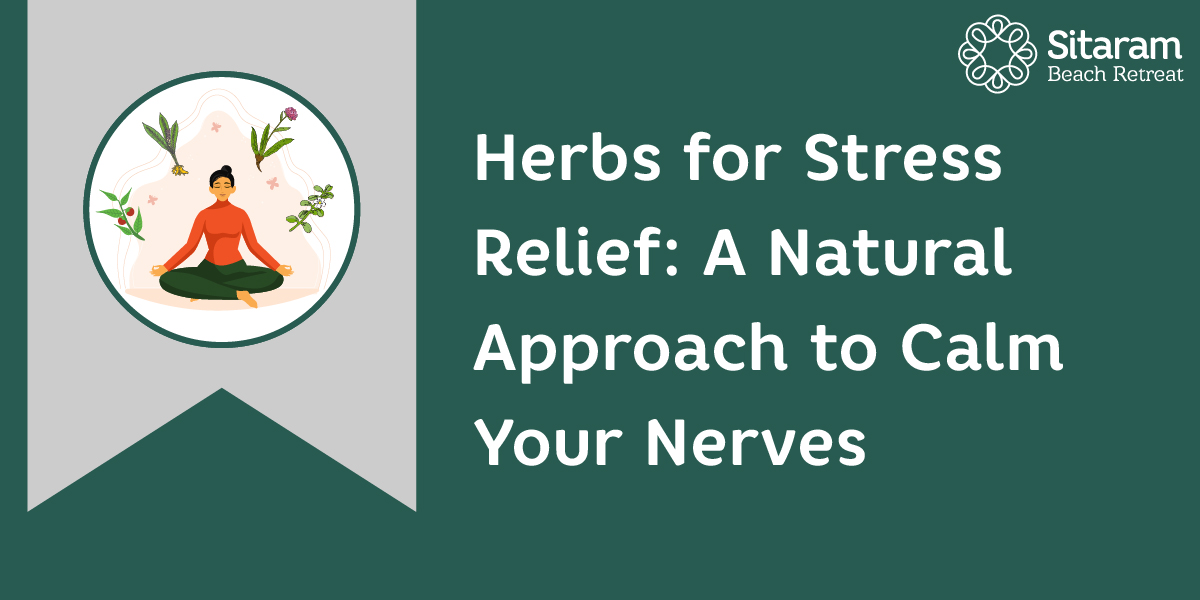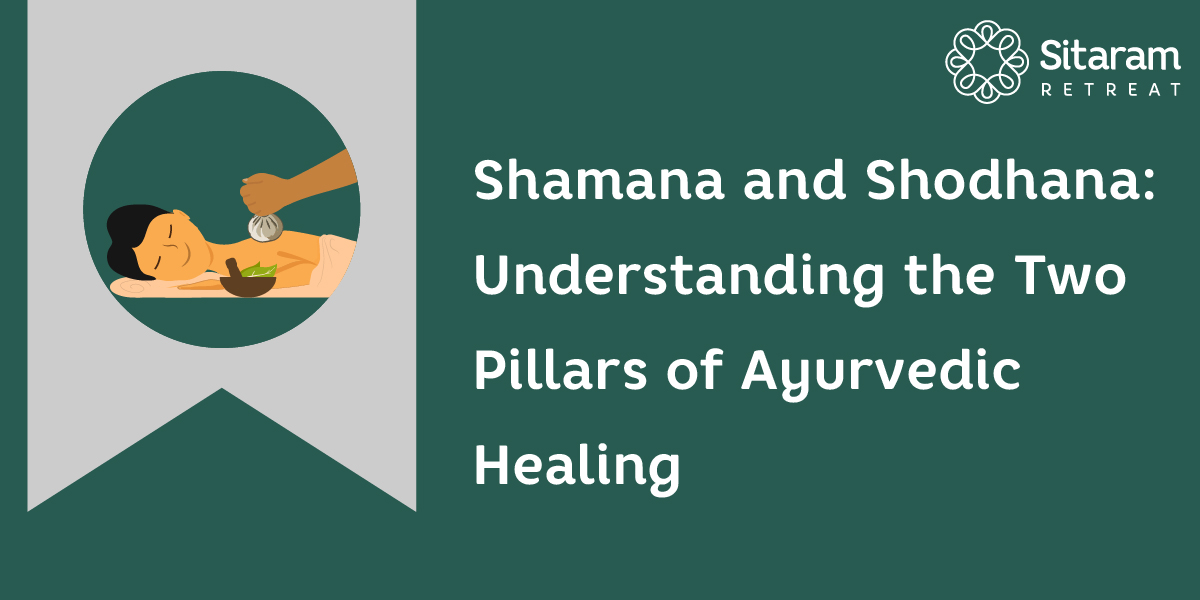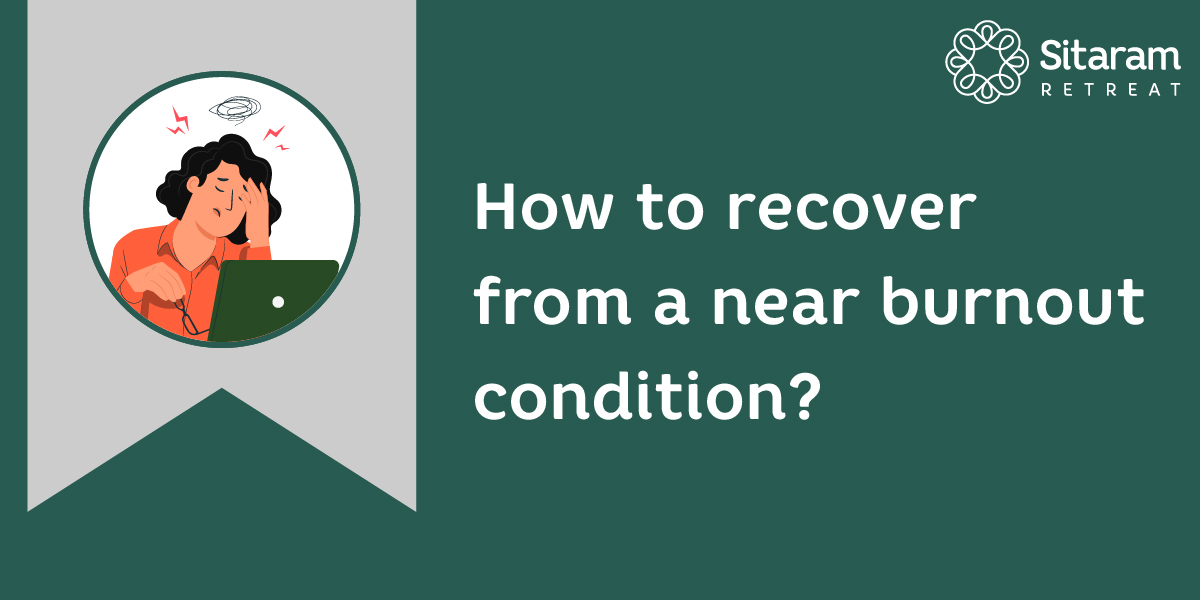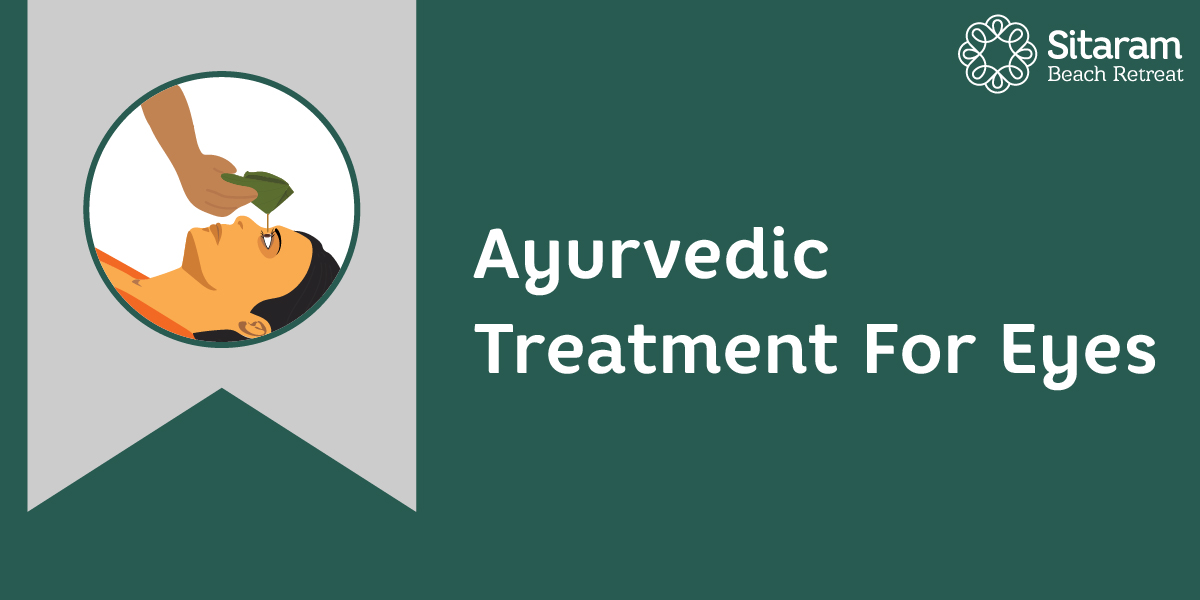Herbs for Stress Relief: A Natural Approach to Calm Your Nerves
By retreatadmin

Do you feel on edge about the Modern Age?
In order to increase our quality of life, stress and worry have both evolved into the most unavoidable and unwanted companions of a person. You may be hanging by a thread due to bills, deadlines, presentations, health issues, family obligations, your job, and many other factors. Each person reacts to tension differently in their body. Stress has several negative effects on a person’s physical and mental health, including physical exhaustion, emotional trauma, physiological damage, and existential crises.
The effects of excessive stress
Numerous bodily functions, including the immunological system, neurological system, musculoskeletal system, cardiovascular system, and many more, might suffer when we are under excessive stress, including digestion, metabolic function, and body weight imbalances.
Additionally, excessive stress has the potential to affect our relationships, mental and emotional well-being, and bone health (as well as the health of our teeth, hair, and nails, which are connective tissues). Although stress is a contributing component in many diseases, its impact is often neglected since it wears us out on a systematic basis.
The basic conclusion is that if you are aware of your stress (even occasionally), there is a considerable possibility that you will benefit greatly from making some helpful adjustments.
So how to transform?
Ayurveda offers a number of methods for reducing stress. This ancient system of medicine has restrictions on the use of therapies including meditation, nutrition, herbs, aromatherapy, massage, and other comparable therapeutic practices that reduce stress and anxiety. The most significant medical system that addresses mental and spiritual recovery for optimal health is Ayurveda. And it will never disappoint you for the same reason.
Herbs for stress relief: 5 herbal allies to count on
● Tulsi (Ocimum sanctum):
The physical, physiological, and emotional factors that cause stress are actively fought off by the body’s guardian, “The Holy Basil.” Eucalyptol, caryophyllene, and rosmarinic acid, among other substances found in tulsi, have been demonstrated to have stress-relieving and anti-anxiety properties. It soothes tenseness and promotes harmony in your heart, mind, and body. Whether consumed as a morning cup of tea or a flavored pill, the aroma, the healing ingredients, and the cooling leaves all work together to calm the body.
● Bhringraj (Eclipta alba):
Bhringraj is frequently utilized in Ayurveda medicine to assist in balancing the body’s three doshas—vata, pitta, and kapha—or energies. Problems with physical and mental health may result from an imbalance of these three bio-energies. The tridoshas can be balanced by Bhringaraj, which can aid in fostering general well-being and enhancing mental wellness.
Thus it promises a more tranquil nervous system and mind. The cooling effect of bhringraj promotes mental clarity, reduces stress and tension, and promotes comfortable, deep sleep. By providing a steady flow of oxygen to the brain and boosting blood circulation, Bhringaraj aids in cleansing the body and reviving your mind. Bhringraj tea is a wonderful reliable option as it will calm your body and mind.
● Turmeric (Curcuma longa):
One of the most widely used herbs in traditional medicine, turmeric has long been used for its alleged health advantages. Turmeric’s primary component, curcumin, has a beneficial effect on relaxation and mental health. That is the reason why elders and even medical professionals urge us to drink turmeric when we are ill. Due to its anti-inflammatory and antioxidant qualities, curcumin can aid in lowering oxidative stress, which is associated with diminished relaxation and poor mental health.
● Brahmi (Bacopa monnieri):
Applying the extracts of this miracle medication to our daily lives can manage neuro-inflammations, mental tiredness, and anxiety all at once. By lowering the body’s cortisol levels, the chemicals in brahmi improve mood. Because cortisol is popularly known as the stress hormone.
Additionally, brahmi reduces stress by changing the body’s level of serotonin, popularly known as the “happy hormone.”
In addition to being a potential anxiolytic, it improves memory.
● Ashwagandha (Withania somnifera):
Traditional Indian medicine has long employed the herb ashwagandha, which provides a range of health advantages. The plant that balances Vata most well. It increases your body’s optimal metabolic responses and aids in giving you a sense of stability, rootedness, warmth, and energy. Ashwagandha has been used for a long time to treat neurological deficits, stress, and cognitive dysfunction. It is a well-known Rasayana drug and a well-liked medication that, in the conventional medical system, functions as a general tonic for stress alleviation.
● Jatamansi (Nardostachys jatamansi):
Jatamansi’s ability to preserve nerves has long been recognized by traditional medicine, but science has only just begun to recognize its many advantages, particularly for the nervous system. Spikenard, also known as jatamasi, has powerful soothing effects. The main medicinal components of Jatamansi that might relieve tension from your mind are the plant’s roots. Jatamansi is a wonderful herb for boosting your nerves without having any negative side effects, thanks to the numerous neuro-protective properties of its antioxidants. It facilitates the removal of toxins and obstructions from the body and mind, enhancing brain health.
What more..? There’s one more important suggestion.!
Yoga to cultivate calm
Through yoga and its asanas, one can develop the meditative mind necessary for a relaxed and receptive psychosomatic state. Modern yoga therapies and asana therapies assist in focusing conscious attention on one’s own body, breath, and energy. Yoga is a type of mind-body medicine that helps to balance spiritual aspects of health, especially those that are caused by stress. The three fundamental tenets of yoga are asanas (gentle stretching), pranayama (breathing exercises), and meditation. And it has been shown that using all three of them at once will help you manage stress and anxiety.
At Sitaram, we provide natural stress management techniques that cater to everyone, regardless of their current philosophical approach towards pragmatism and the pursuit of wealth. Our focus lies in helping you achieve physical and mental well-being from the core. Emphasizing the importance of nurturing your inner self, we offer effective treatments to ensure your overall fitness and vitality


 retreat@sitaramayurveda.com
retreat@sitaramayurveda.com +91 813 8888 912
+91 813 8888 912





